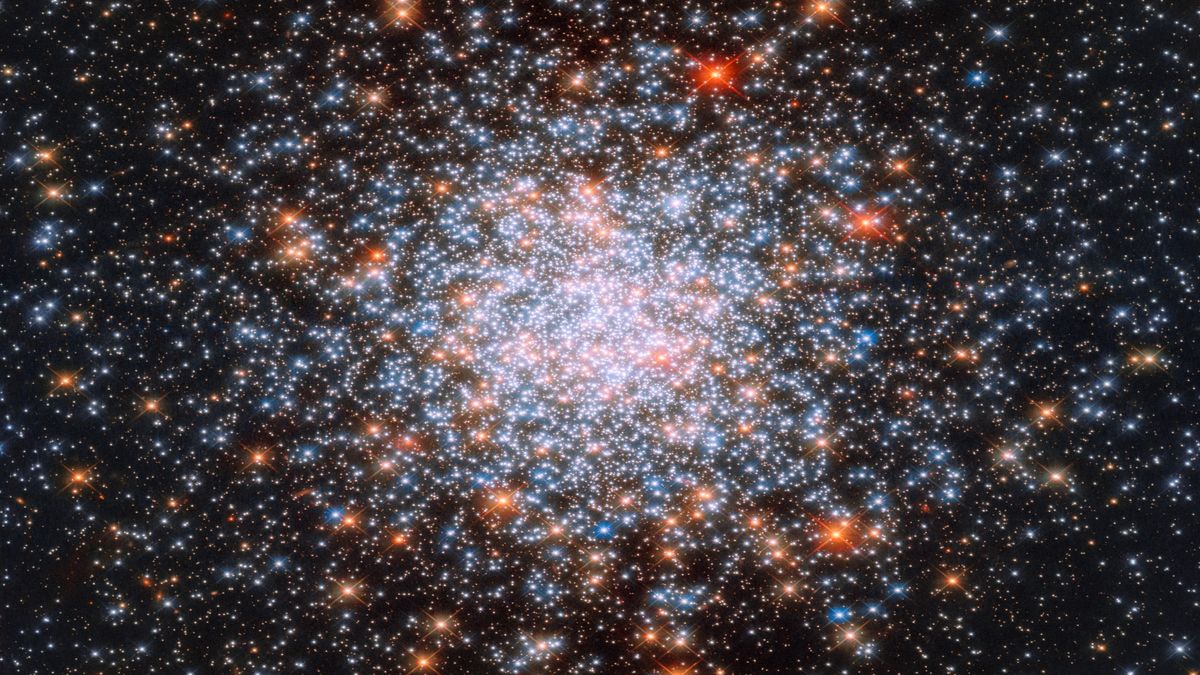The universe expands. And it expansion increases. But will there be a time when the universe contracts ? And returns to a singularity to form a new universe ?
I think physicists are still not 100% sure if the universe will contract in a big fiery end or expand forever and become a very sparse cold and empty place. I believe they are leaning towards the latter.But will there be a time when the universe contracts?
but given that there are stars out there that seem to be older than the Big Bang (which yes, is controversial)
I'm not a fan of space, but it's the first time I've heard this.Pure amateur and ill-informed speculation, but given that there are stars out there that seem to be older than the Big Bang (which yes, is controversial), this hints at there having been one or more universes before ours. And that the Big Bang wasn't as big as originally thought. And therefore, perhaps big bangs are more cyclic rather than a once-ever kind of event. If so, then we might expect the universe or parts of it to contract again in the future for another bang.
The cyclic idea idea was when we still figured the universe would collapse back into itself again. So you get this "pulsating" universe, big bang, expansion, contraction, big crunch, big bang, expansion, contraction, etc. There are also several ideas floating around regarding a "multiverse", with each universe created inside a "bubble". All very theoretical of course, there's no way we could ever prove the existence of a "multiverse".I'm not a fan of space, but it's the first time I've heard this.
As far as we've been able to measure the universe is "flat". It could still be curved though (positive or negative curve), but we may not be able to measure it.Is the universe a 3-sphere? If so it will just go round and come back again.
I remember this being called the "Big Whimper" scenario for the end of the universe. It was the accepted likely scenario when I last read about this decades ago.About 40 years ago, the textbook answer was: Given that the universe is expanding rapidly, and does not contain enough stuff for gravity to pull it back together, it will continue expanding forever. Meaning things will get boring, cold and lonely.
The Big Crunch is back in vogue, it seems:Today, with dark matter/energy, the answer has become less clear. We now know that there is a lot more stuff than we can see or measure. But we don't know what that stuff is, nor are we really sure how it interacts (for example by gravity). But I haven't heard any serious theory of re-collapse.

Cool. I've added Dr.Becky to Sabine Hossenfelder.
this is currently unknown, but there was theories that our universe might be a certain manifold, for example torus. what exact geometry is a case of refined measurements ( for example of CMB ) which will tell if the space is flat or curved. With years passed i tend to not accept inflation theory. I like Neil Turok approach more. https://insidetheperimeter.ca/a-mirror-universe-might-tell-a-simpler-story-neil-turok/Is the universe a 3-sphere? If so it will just go round and come back again.
Yes, every possible theory is back in vogue to explain astrophysics. That includes multiverses, branes, cyclical collapse, strange topology, dark energy, and who knows what else. Similar things are happening in the (closely connected) field of particle physics: While we have now created the Higgs in the lab, our understanding of why particles are the way they seem to be is still frustratingly incomplete. In particular, weak interactions and neutrino physics remains an enigma. This also leads to the rise of a huge quantity of theories, which all get published on the web, and many of them also in respectable journals.The Big Crunch is back in vogue, it seems:
